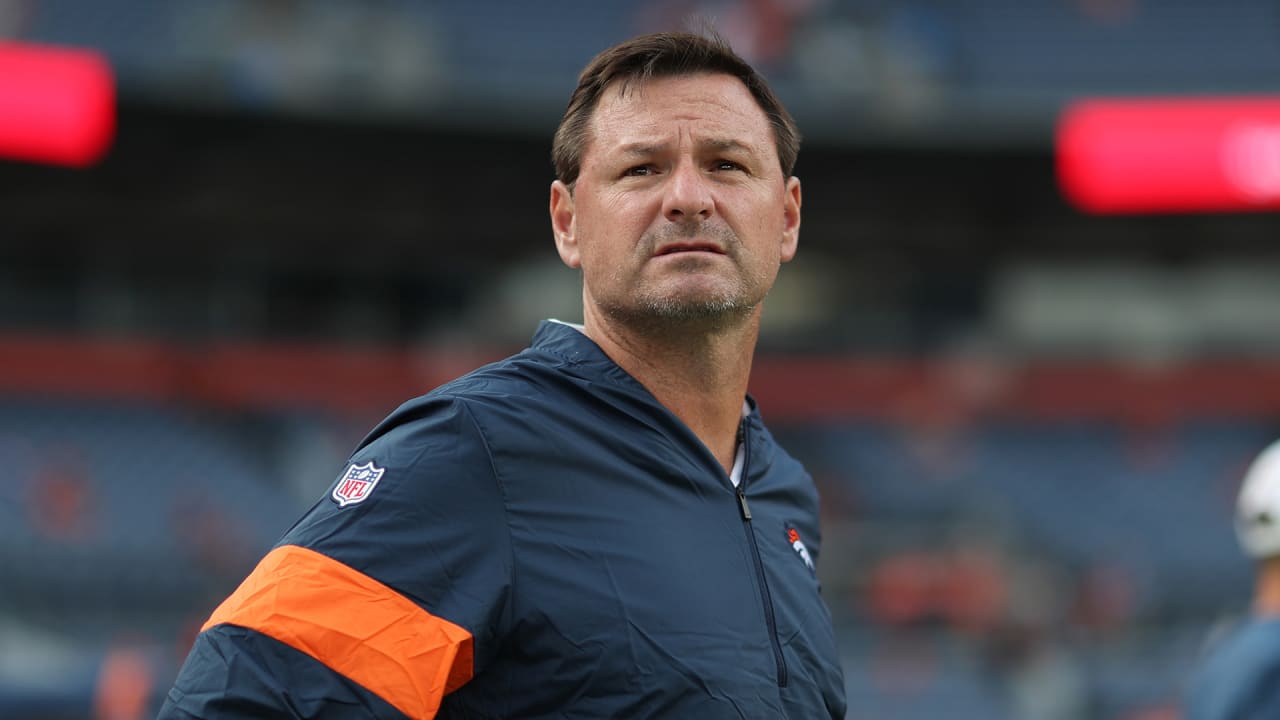Miles
Well-known member
- Mar 18, 2019
- 2,455
- 0

When the Broncos compiled their new coaching staff earlier this year, they added an offensive coordinator who has roots in the offensive system that led the Broncos to all three of their Super Bowl championships. Rich Scangarello, former San Francisco quarterbacks coach, had never before called plays at the NFL level, but his potential and experience at other levels led Head Coach Vic Fangio to hire him. Now paired with Joe Flacco, Scangarello will aim to revive the Broncos' offense. Before a recent practice, we caught up with him about his career, how he plans to help Flacco succeed and how Drew Lock can adjust to the NFL.
When you started out coaching at Oakmont High School, your alma mater, did you know you wanted to become a professional football coach?
“No. Honestly, I just think I was planning on going in a business route, and when I went back, I knew in my heart I was always a teacher. I could have saw myself as a high school algebra teacher or something along those lines. So when I went back, I was thinking, ‘Yeah, I could be the head coach at my old high school, or a high school, and teach and have a great life.’ Then things — circumstances, opportunities, some luck, some things on my own doing — led me down a different path. And once I was in it, I was never going to look back.”
With your business degree, what happened when you told your parents, “Actually, I’m going to give this coaching thing a shot”?
“Actually, they’re the ones that pushed me that direction, probably. I’ve been very fortunate. I have a great family and great support from my parents. They had always guided me to chase my passion and the things I enjoy to do. And they know that I was probably meant to coach and teach, and so they knew I’d be really good at it, I thought, in their heart — and so they encouraged me to do it.”
How did you fall in love with football?
“I started playing Pop Warner when I was 7 years old, and my dad was around as a coach and just really I always loved the game, the discipline that goes with it, the strategy. I would have loved to be a little bigger and a little faster, but I absolutely loved it and it’s something that I’ve always been passionate about and been fortunate enough to take the career path that I have.”
Are there things you can take from coaching high school and apply to what you do now at the highest level?
“I think so. I think more than anything, it doesn’t matter what level you’re at, and that’s the great thing about working for Coach Fangio, and I think it’s what’s important in his coaches: There are people that are put on this planet to play the game and can do it at a very high level, and then, I believe, there’s others who are put on this planet to coach and teach at a high level. I think it takes ability to connect with people, to help them improve their weaknesses and then feel confident as a player, and it’s your job to bring that out of them. I just feel like that’s something I’ve been able to do at every level, and I think that’s where I’ve continued to grow and gain confidence as my knowledge of coaching at this level of the game has grown.”
At the University of California at Davis, you became an offensive coordinator for the first time when you were named co-offensive coordinator for the Aggies. Who mentored you during that transition and helped you prepare for that new challenge?
“Well, my first opportunity was really at UC-Davis when I was the QB assistant. That was my title; it was a graduate-assistant-type position at Davis. I just happened to be very fortunate to work with the head coach, Bob Biggs, who might be the best quarterback developer [and] evaluator that I’ve ever met at any level. He had a great deal of success there. We had a lot of very talented quarterbacks I was able to work with at a young age as a coach. It just really helped me grow and to see how he developed players, how he evaluated them. And then his mind, offensively, he was ahead of his time. Even though they were Division II at that point, they hadn’t had a losing season in over 20 years and were perennial contenders in Division II before they went I-AA. I just had a real great experience and Bob Biggs had a huge impact on me.”
